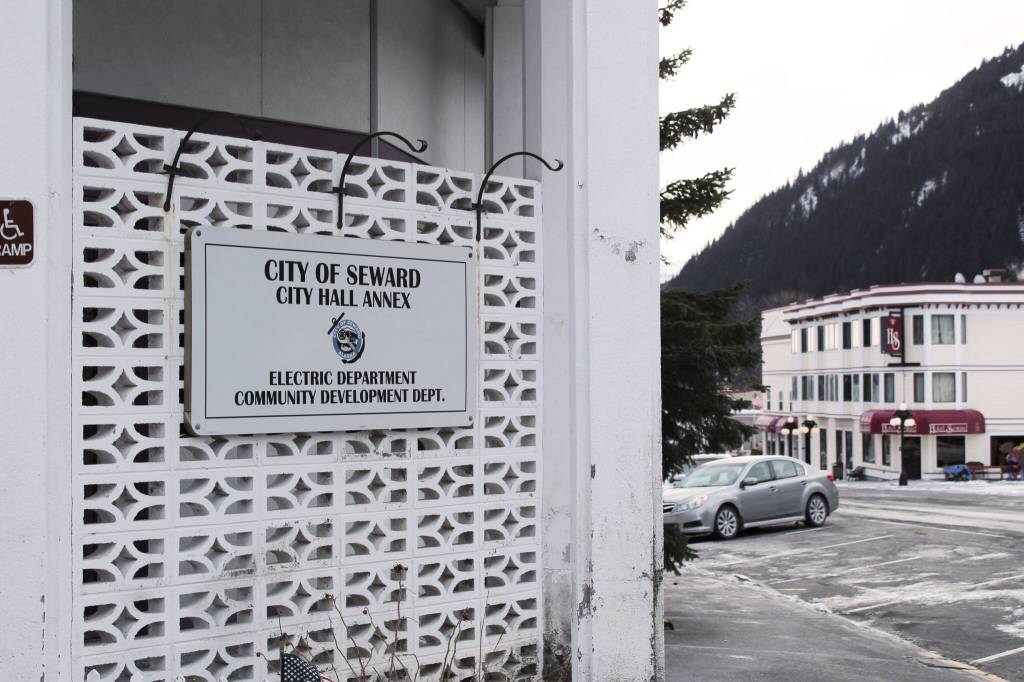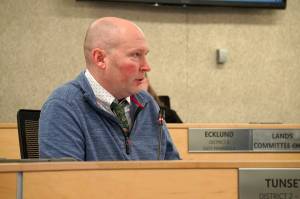Seward electric rates to increase by $0.06 per kilowatt hour Jan. 1
Published 10:30 pm Sunday, December 17, 2023
The average Seward Electric residential customer will pay $36 more per month for electricity starting Jan. 1 following a rate increase approved by Seward City Council members on Monday. The resolution approved by council members Monday increases rates by $0.06 per kilowatt hour.
The increase comes as the city stares down upcoming expenses related to deferred maintenance, state-mandated cybersecurity upgrades, the need for additional staff resources and inflationary impacts associated with its electric utility. Seward twice in 2023 voted not to sell the utility to Homer Electric Association: first during a special election in May and again during the city’s regular election in October.
Council members first considered the proposed $0.06 per kWh increase during their Nov. 13 meeting but postponed their vote until their December meeting. Multiple members of the public during both meetings asked that council members consider a smaller increase, such as the amount proposed by the Seward Electric Ad Hoc Committee, which recommended a $0.017 per kWh increase.
The $0.06 per kWh amount approved Monday came from a rate study conducted for the city by Financial Engineering Company’s Mike Hubbard earlier this year. In the event that the city’s utility sale failed, that study recommended a $0.06 per kWh increase for all customers for the city to meet its future revenue targets.
For Seward Electric’s average residential customer, who uses 600 kWh per month, a $0.06 per kWh increase would increase their monthly payment by $36. Across all types of utility customers, the increase would generate about $10.6 million in new revenue for the city in 2024. The council directed the city to explore a program that would provide a rate reduction for low-income households.
Council members on Monday debated the pros and cons of implementing the $0.06 per kWh increase all at once versus implementing two $0.03 per kWh increases over a longer period of time. Some said two separate increases would allow the city to ease into the change, while others said delays would be putting off the inevitable.
Council member Robert Barnwell said that the full $0.06 increase would just provide the necessary revenue, arguing that if the city is going to implement a rate increase it should not do so halfway.
“According to Mike Hubbard, a $0.06 increase barely gives us any margin for error, or just a barely acceptable margin,” Barnwell said. “When we say that we can go to two or three cents, to me I think it’s irresponsible and negligent and it misleads the public.”
Seward Vice Mayor John Osenga had similar thoughts, saying that breaking the increase up would mean “pushing the can down the road.”
“We need to do what we need — what I feel like — we need to do,” Osenga said. “If it’s been recommended and argued for by a professional — and as far as I know, administration is kind of saying ‘Yes, do a $0.06 increase’ — then I just would feel kind of odd going against recommendations of professionals at this point.”
Council member Mike Calhoon was one person who said the city should consider two smaller increases and then evaluate after the first increase whether another is actually needed.
“I personally would feel better if we just sequenced it a little bit,” Calhoon said. “If we do an increased, get it set but then really start to look and see what our budget really is because some of the things we’re talking about are sort of speculative.”
Council members discussed, but ultimately voted against an amendment that would have implemented two $0.03 increases by a vote of 5-2. The rate increase was similarly approved by a vote of 5-2, with council members Mike Calhoon and Kevin Finch voting in opposition.
Monday’s Seward City Council meeting can be streamed on the city’s YouTube channel.
Reach reporter Ashlyn O’Hara at ashlyn.ohara@cmg-northwest2.go-vip.net/peninsulaclarion.





